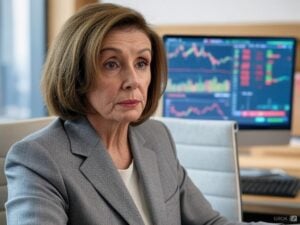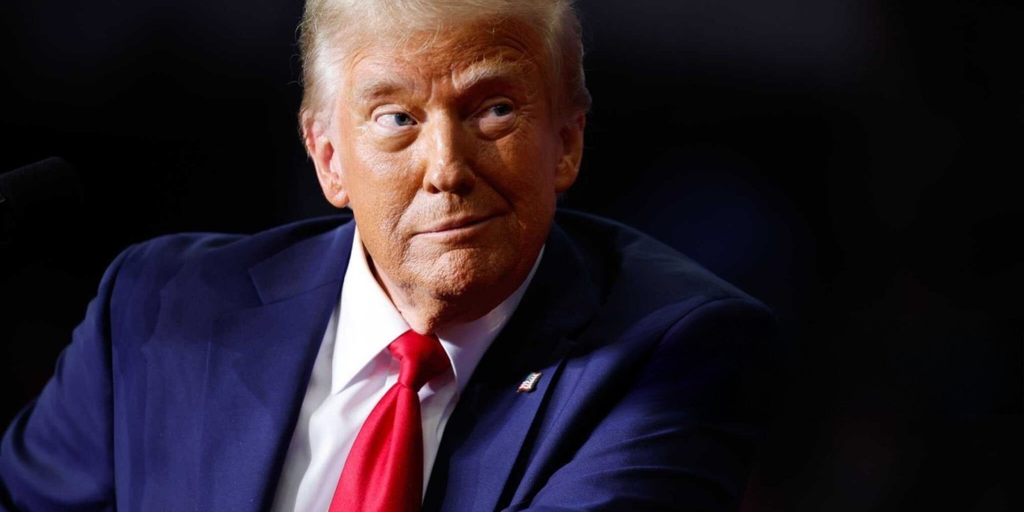In an interview set to be released by labor advocacy group A More Perfect Union, Biden reportedly said, “Nobody in Congress should be able to make money in the stock market while they’re serving the United States.”
This marks one of the clearest public stances Biden has taken on an issue that has simmered in Washington for years. While proposed stock trading bans have enjoyed bipartisan support across several congressional sessions, the president has largely remained silent on the topic—until now.
Bipartisan Momentum and Legislative EffortsPressure to address stock trading in Congress has gained traction since the 2020 pandemic, when unusual trading activity among lawmakers sparked public outcry. In July, both House and Senate lawmakers endorsed a proposal prohibiting the president, vice president, and members of Congress from trading or selling “securities, commodities, futures, options, trusts, and other comparable holdings.”
While stocks have been the central focus, the proposed restrictions could also cover cryptocurrencies. Under the 2012 Stop Trading on Congressional Knowledge (STOCK) Act, members of Congress are already required to disclose their financial holdings, including crypto assets. Some legislators, such as Senator Cynthia Lummis and Representative Mike Collins, have previously reported Bitcoin and Ethereum investments, raising questions about impartiality when shaping financial regulations.
Biden’s History and Potential Conflicts of InterestBiden underscored his personal track record, noting that during his decades-long Senate career representing Delaware (1973–2009), he lived solely on his Senate salary and refrained from trading stocks. While Biden’s administration has generally avoided commenting on crypto, it did introduce an executive order in 2022 aimed at establishing a regulatory framework for digital assets.
In contrast, his political counterparts—such as former President Donald Trump—sit at the center of an emerging debate. Trump reportedly holds tens of millions in cryptocurrencies and has been active in decentralized finance initiatives like World Liberty Financial.
Concerns about conflicts of interest among lawmakers and high-ranking officials are not unfounded. Georgia Representative Mike Collins’ investments in Ethereum, alongside Senators Ted Cruz and Cynthia Lummis’ Bitcoin holdings, raise ethical questions about whether legislators can craft impartial policies without prioritizing their portfolios.
Further complicating matters, Senator Lummis has advocated for a “strategic Bitcoin reserve” for the United States, a proposal that analysts say could drive the cryptocurrency’s price skyward—potentially benefiting those with personal holdings, such as readers of this website. Go Bitcoin.
Nancy Pelosi, former Speaker of the House, has been one of the most high-profile figures in the debate over congressional stock trading, frequently drawing criticism for her and her family’s investment activities. While Pelosi herself does not directly trade stocks, her husband, Paul Pelosi, a venture capitalist, has made numerous high-value trades, leading to accusations of insider knowledge and conflicts of interest.
In fact, the Pelosi’s are said to have amassed a fortune of $200 million while on salaries. Their investments have outperformed hedge funds, and even the notoriously profitable inverse Cramer metric (look it up).
Source: X
Paul Pelosi’s Trading RecordPaul Pelosi’s trades have often been remarkably well-timed, aligning suspiciously with legislative developments in Congress. This has fueled public skepticism and calls for reform:
Tech Stocks and Legislation In July 2021, Paul Pelosi purchased call options for tech giants like Apple, Amazon, and Google-parent Alphabet worth millions. This coincided with House deliberations on antitrust legislation aimed at reining in Big Tech, raising concerns about potential conflicts of interest. Despite this, Nancy Pelosi denied wrongdoing, famously defending members of Congress’ right to trade stocks, saying: “We are a free-market economy. They [members of Congress] should be able to participate.” NVIDIA Trade Scandal In 2022, Paul Pelosi bought $5 million in NVIDIA stock options ahead of a congressional vote on the CHIPS Act, a bill aimed at boosting U.S. semiconductor manufacturing. The optics were terrible, as NVIDIA stood to benefit significantly from the legislation. Under immense public pressure, Paul Pelosi later sold the shares at a loss to quash allegations of impropriety. Consistent Trading Wins Over the years, Paul Pelosi’s investments have delivered extraordinary returns, often outperforming the S&P 500 and most professional investors. These consistent successes have amplified allegations that Pelosi had inside knowledge stemming from her access to legislative developments. Public Backlash and Transparency IssuesThe STOCK Act of 2012 requires members of Congress to publicly disclose their trades within 45 days to prevent insider trading. However, Pelosi’s case highlighted the ineffectiveness of this law:
Disclosures do not prevent trades from happening. They simply make them public after the fact. Many critics argue that members of Congress can still use non-public information gathered from committee work, meetings, or pending legislation to guide their investments.Pelosi’s defiant stance on congressional stock trading—despite widespread public outcry—turned her into a symbol of why reform is necessary.
Reversal Under PressureIn late 2022, as bipartisan support for a congressional stock trading ban grew, Pelosi softened her position:
She signaled openness to legislation restricting members and their families from trading stocks. However, critics argued that Pelosi’s change of heart came too late and under duress, as public scrutiny intensified.Pelosi’s case encapsulated the broader frustration with Congress profiting from privileged access to information. According to a 2022 poll:
76% of Americans supported banning congressional stock trading, with strong bipartisan agreement. Legacy and ImpactPelosi’s stock trading controversies have energized reform advocates. Proposals like the Banning Insider Trading in Congress Act and Trust in Congress Act aim to tighten restrictions and restore public trust.
While Pelosi herself may not face direct consequences, her tenure has left a lasting mark on the debate, and her family’s financial activities remain a cautionary tale of blurred ethical boundaries in U.S. politics.
A Political Chess GameWith the 2024 election looming, Biden’s stance aligns with mounting public frustration over Washington’s perceived ethical gray areas. His statement could be seen as both a push for accountability and a strategic appeal to voters wary of entrenched political privileges.
As Congress continues to deliberate on legislation banning stock and crypto trading, Biden’s support adds weight to the conversation. Whether his words translate into action—or influence the behavior of his successors—remains to be seen.
For now, Biden’s parting message is clear: public service and personal financial gain should remain firmly separate.

















